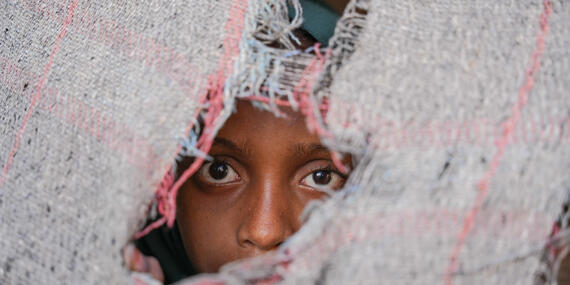OCHA appeals to Security Council for aid worker release

Briefing to the Security Council on the humanitarian situation in Yemen by Edem Wosornu, Director of Operations and Advocacy for OCHA, on behalf of Martin Griffiths, Under-Secretary-General for Humanitarian Affairs and Emergency Relief Coordinator
As prepared for delivery
Thank you, Mr. President.
And thank you to Special Envoy Grundberg for his update and for his unwavering efforts to help the parties achieve peace for the people of Yemen.
Mr. President, distinguished delegates,
I will focus my remarks today on two extremely concerning developments.
The first is the recent detention of Yemeni colleagues working for the United Nations and international non-governmental organizations by the Houthi de facto authorities.
The second is the rapidly deteriorating banking and economic situation, with potentially devastating ramifications for millions of people across Yemen.
Mr. President,
As we have just heard from Special Envoy Grundberg, in the past two weeks, the Houthi de facto authorities have detained 13 colleagues working for the United Nations, five staff members of international NGOs, and many more from national NGOs and civil society. All detained staff are Yemeni nationals and remain in detention as of this morning.
Clearly, the situation is concerning. The families of those detained are even more worried.
We have received very limited information on the circumstances of our colleagues’ detention. We still do not know their exact whereabouts or the conditions in which they are being held.
We are actively seeking clarification from the Houthi de facto authorities on these issues, are requesting access to our colleagues in detention, and urging their immediate release.
These circumstances apply equally to the four UN personnel who have been in detention since 2021 and 2023.
I must recall that international law prohibits the arbitrary deprivation of liberty. It also requires all parties to an armed conflict to respect and protect humanitarian personnel, including against any harassment, mistreatment and unlawful arrest or detention.
United Nations personnel and NGO staff – the majority of them national staff – work tirelessly to help millions of people in need across Yemen. They do so in extremely difficult conditions and at enormous risk to their own well-being and safety. They should never be subject to arrest or detention because of the work they do.
Not only do these acts put UN personnel and NGO staff at risk, they delay and impede the delivery of critical assistance to millions of people.
They also risk exacerbating already worrying levels of misinformation and disinformation towards the humanitarian community.
We call on the Houthi de facto authorities to cease all arbitrary arrests and detentions and release anyone who is held in such a manner.
I reiterate the Secretary-General’s call for the immediate and unconditional release of all UN personnel detained in Yemen.
Mr. President,
Turning to the second set of concerning developments, in recent weeks, both the Houthi de facto authorities and the Government of Yemen have issued competing and increasingly stringent directives banning individuals, businesses and local and international financial institutions from dealing with banks based in areas controlled by the other party.
This includes a potentially imminent decision to exclude banks based in Sana’a from using the SWIFT banking system, which would prevent these banks from facilitating international financial transactions.
These developments have potentially catastrophic ramifications.
They threaten to further fragment and weaken Yemen’s already struggling economy.
They undermine the private sector's ability to conduct the financial transactions necessary for the import of food and other essential goods – further limiting the availability of basic commodities and driving up prices.
And they are disrupting the flow of remittances, on which so many families in Yemen depend.
All these factors will likely deepen poverty, worsen food insecurity and malnutrition, and increase reliance on humanitarian assistance.
Mr. President,
These measures also have serious repercussions for humanitarian relief operations.
The increasingly volatile banking environment has worsened an existing liquidity crisis, making it very difficult for humanitarian organizations to pay staff salaries or to procure and pay for the many services they rely on for their operations.
These challenges will continue to intensify unless solutions are found.
If banks in Sana’a and other areas controlled by the Houthi de facto authorities are cut off from international financial institutions and networks, we will lose the ability to transfer the funds required to sustain humanitarian operations.
This is particularly concerning in the midst of a worsening cholera outbreak and already high levels of food insecurity and malnutrition.
Mr. President,
When we briefed the Council last month, we pointed to the immediate resumption of oil exports and the sustainable payment of salaries to public sector employees as vital to shoring up Yemen’s economy.
We further urged the parties to put the interests of the people of Yemen first, and end hostile economic measures.
In light of recent developments, this appeal is even more pertinent today.
Mr. President,
Allow me to conclude by extending my condolences to the families of at least 49 migrants who lost their lives when their boat capsized on its way from Somalia to Yemen this past Monday. According to our colleagues at the International Organization for Migration, 140 other people who were on board remain missing.
This incident is a tragic reminder of the dangers faced by migrants, refugees and asylum seekers along migration routes to Yemen. Ultimately, these challenges require regional solutions.
Thank you.
